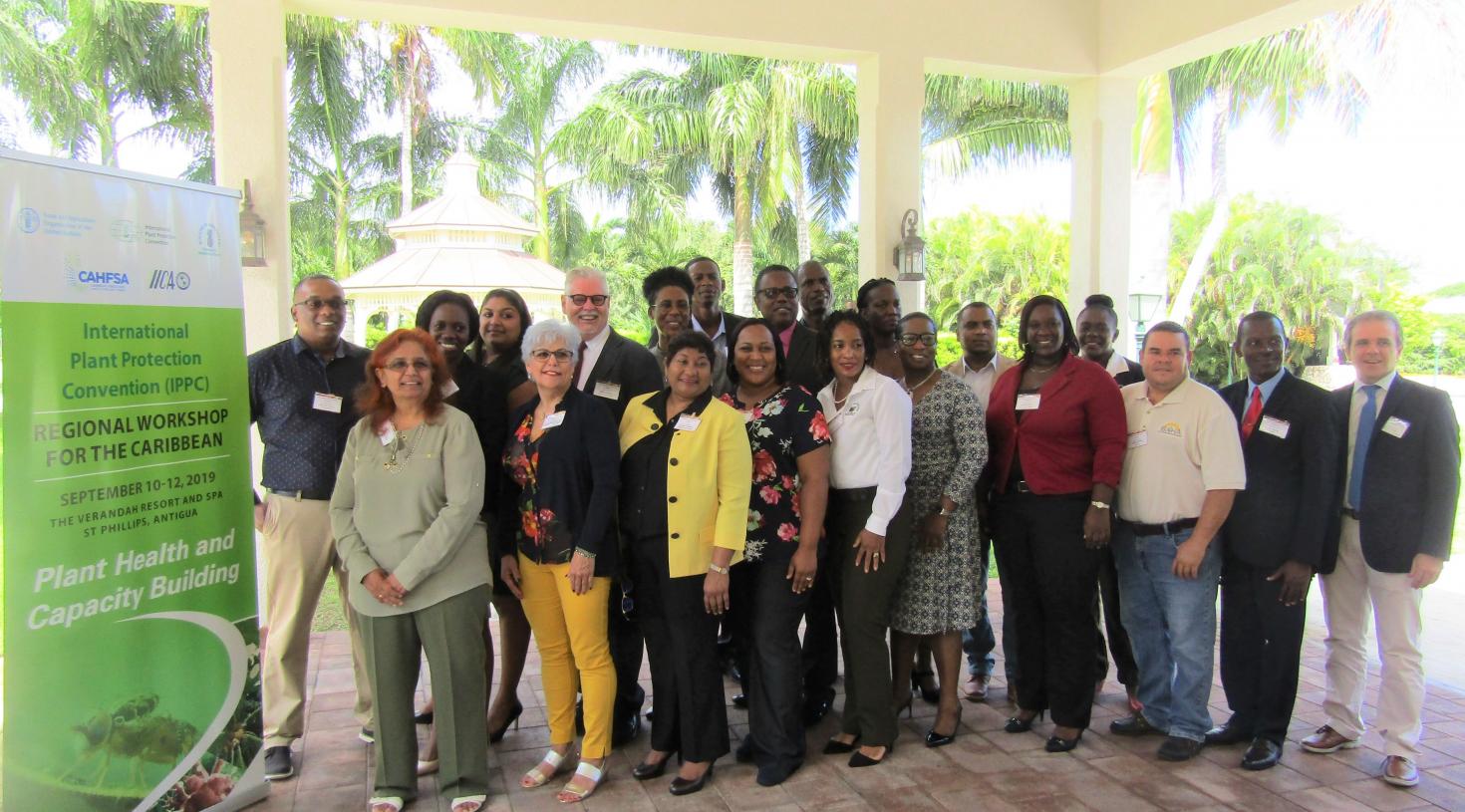IICA provides countries in this region with the tools required to address matters related to international standards on plant health.

Saint Philip, Antigua and Barbuda, 2 October 2019 (IICA). Agricultural experts from 12 Caribbean countries and the official contact points of the International Plant Protection Convention (IPPC) discussed national and regional positions on international standards related to plant health and pest prevention.
The exchange took place during the annual workshop of the IPPC, which also provided participants with an opportunity to strengthen their capacity for preventing the entry and establishment of exotic invasive pests, as well as to share best practices in plant health.
The event was organized jointly by the Inter-American Institute for Cooperation on Agriculture (IICA), the IPPC Secretariat, the Sub-regional Office for the Caribbean of the Food and Agriculture Organization of the United Nations (FAO), the Caribbean Agricultural Health and Food Safety Agency (CAHFSA), which is the Regional Plant Protection Organization (RPPO) for the Caribbean, and the Ministry of Agriculture, Fisheries and Barbuda Affairs of Antigua and Barbuda.
“These annual regional workshops are very important for the Caribbean because they enable IPPC contracting parties in the region to fully participate in the standard-setting process,” explained Juliet Goldsmith, Plant Health Specialist at CAHFSA.
Robert Ahern, Manager of IICA’s Agricultural Health, Food Safety and Food Quality Program, reiterated the Institute’s commitment to provide countries in the Caribbean with the tools they require to address plant health issues.
“Our goal is to support active participation in the standard-setting process for the IPPC’s International Standards for Phytosanitary Measures (ISPMs),” he stated.
Of particular importance in this year’s edition of the annual IPPC workshop was the organization of a technical seminar on the fungal disease Fusarium oxysporum f. sp. cubense tropical race 4 (FOC TR4). This disease has caused heavy losses to banana production in several Asian and African countries and is now present in South America.
The regional plant health professionals in attendance discussed plans to address the threat posed by this devastating disease to the agriculture sector of many Caribbean countries.
“We welcome the attention that has been given to TR4 fusarium on bananas, given that this disease can impact food and nutrition security goals and the economies of the region,” added Goldsmith.
The annual meeting also provided an opportunity to discuss plans to celebrate the International Year of Plant Health (IYPH) in 2020. The IYPH seeks to raise global awareness on how protecting plant health can help end hunger, reduce poverty, protect the environment, and boost economic development.
The workshop in Antigua and Barbuda was one of seven IPPC annual regional workshops hosted around the world in 2019.
More information:
Robert Ahern, Manager of IICA’s Agricultural Health, Safety and Food Quality Program.
https://www.ippc.int/en/core-activities/capacity-development/regional-ippc-workshops/











